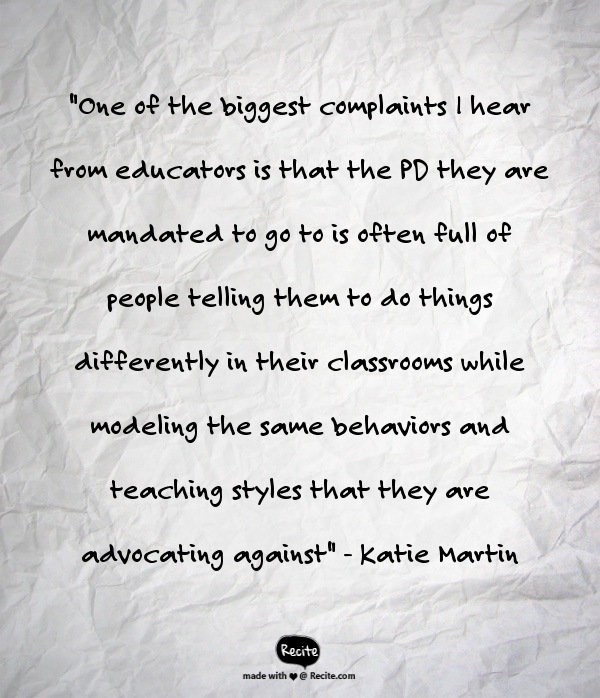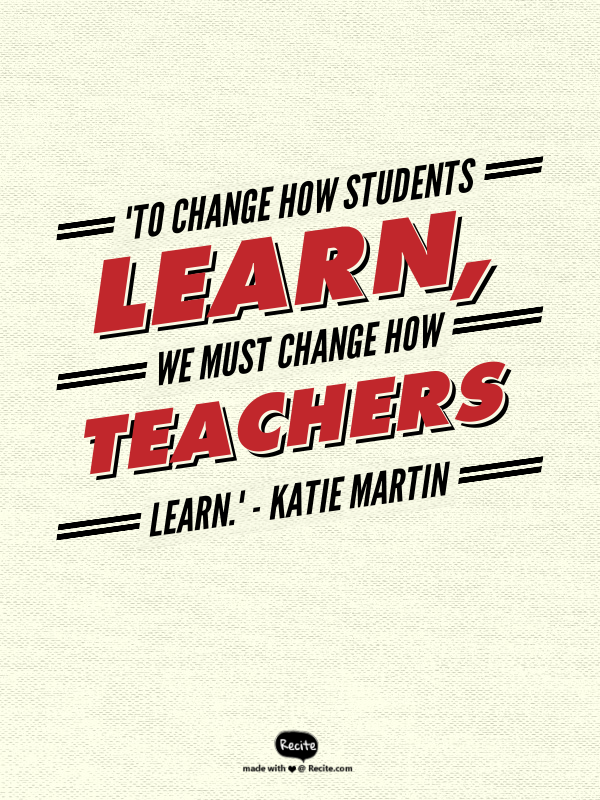CraftED welcomes guest blogger, and co-host of the Innovator’s Mindset MOOC, Katie Martin. With her extensive experience in the field of progressive education the CraftED Community is thrilled to hear her thoughts on the PD REvolution. Read on for our interview with her.
What do you believe is causing unrest amongst educators related to PD offerings?
Teachers jobs are no doubt more complex than ever and we continue to expect more of educators in all positions, yet we keep adding on more programs, resources, and expectations to an outdated model of learning and teaching.
What best practices have you seen in the realm of meaningful PD opportunities?
While there have been trends to “flip PD”and create more conference based professional learning days where educators have choices of sessions to attend, there is still a lot of content being shared. We have to move beyond opportunities to share content and create opportunities for learners to do something. The best learning experiences build on what individuals know and can do and empower learners to explore questions or challenges that directly impact them and their unique context. There are some examples in this blogpost.
What do you see as being the most promising outcome of the PD Revolution?
Ultimately, creating better outcomes for students today. We need to honor the process of learning in a culture that supports teachers to take risks and try out new strategies and resources. When teachers have clear expectations but autonomy and to get there in a way that meets the needs of the learners in their classrooms, the learning possibilities are endless.
What advice do you have for teachers and/or school leaders, as it relates to developing deeper learning experiences for adults?
I have seen some major shifts on how students are learning in schools and there are 3 critical factors that help create a culture of learning and innovation in schools that I shared in my TEDx talk:
1) Create a shared vision of teaching and learning- Teachers thrive when they have the autonomy to carry out that vision in they way that meets the unique needs of the learners in their classrooms.
2) Ensure learning is a process and not an event- Effective leaders create time within the school day for teachers to develop the necessary knowledge, skills, and mindsets. It is in application of the new learning that breeds innovative ideas and practices.
3) Evolve with the world today and #GoOpen– Open classroom doors and empower teachers to work together, open access to information and ideas, and leverage open resources and networks.
About the author:

Prior to joining MTLC, Martin spent 10 years in Hawai’i on the Leeward Coast of O’ahu. Dr. Martin taught middle school English language arts and was an instructional coach. She continued as a new teacher mentor and coordinator of district programs to support and retain effective teachers. She continues to refine approaches to personalized professional learning based on research and practice to create optimal learning environments for all.
